Scholar Insights #4
Embracing Challenges Overseas: Ph.D Scholar Ms. Zin Mar Myint's story in Graph Theory
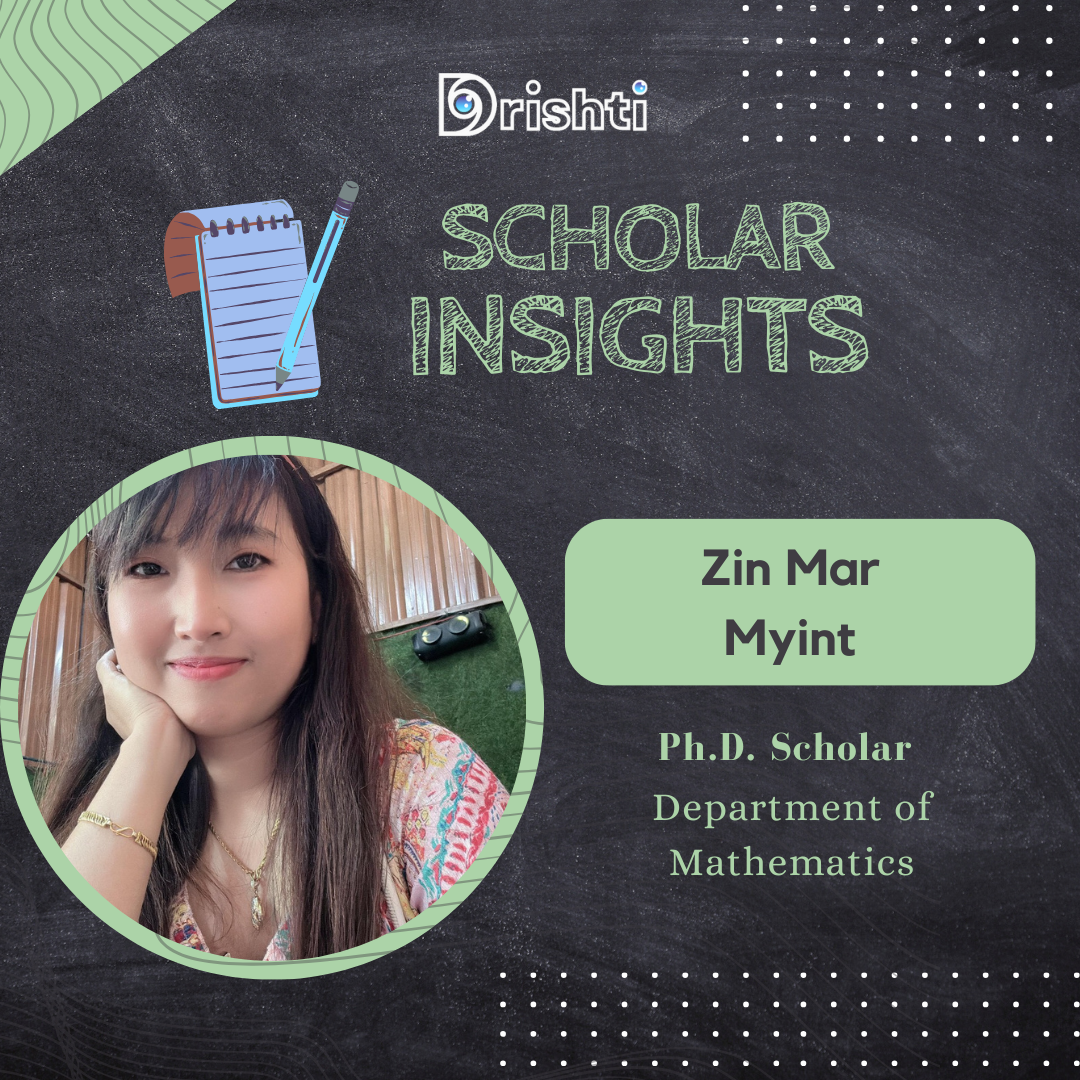
Drishit brings to you a stirring interview with Ms. Zin Mar Myint. With a keen interest in Graph Theory and Combinatorial Game Theory, she shares her experiences of pursuing a Ph.D. abroad, her aspirations and motivations, and provides valuable insights into the real-world applications of graph theory. Dive into this engaging conversation filled with inspiring perspectives and intriguing thoughts.
1. Could you introduce yourself for our audience? Other than academic pursuits, what are your hobbies?
My name is Zin Mar Myint, and I’m currently a PhD student in the Department of Mathematics under the supervision of Prof. Sagnik Sen at IIT Dharwad.
I am originally from Myanmar, and I joined IIT Dharwad in the 2020 Autumn semester through a Doctoral Fellowship in India for ASEAN. In addition to my academic pursuits at IIT, I am also a faculty member in the Department of Engineering Mathematics at the Polytechnic University in Kyaing Tong, Myanmar. Being an international student has been a rewarding experience, and it has allowed me to gain exposure to different academic environments while continuing my teaching role back home.
I enjoy exploring new mathematical concepts and expanding my knowledge through collaborative academic environments. I am also passionate about improving the educational system in my country and believe in the importance of working towards strengthening the academic community. My goal is to contribute to the development of a better education system for my students in Myanmar.
Additionally, I enjoy engaging in activities like exploring new places, learning new academic fields, reading, hiking, spending time with close friends, and connecting with new people. These activities help me maintain a healthy work-life balance and broaden my perspectives beyond academia.
2. Can you tell us briefly about your research topic? How did you choose it, and what sparked your interest in it?
My research explores structural graph theory through combinatorial games, focusing on the application of graph theory to solve real-world problems. I investigate how different concepts within graph theory can be used to address challenges such as network monitoring, where the goal is to identify efficient ways to observe or control networks. Additionally, I study combinatorial games to understand strategic decision-making processes, particularly in games that involve graph structures, such as determining winning and losing positions in games.
The motivation for my research came from a suggestion by my professor, which helped me see the intersection of graph theory and combinatorial games, particularly in modeling complex real-world problems. This area of research offers an exciting opportunity to explore both theoretical foundations and practical applications.
Graph theory is a relatively new field for me, and I was first introduced to it during my Ph.D. coursework. In one of the classes, my professor taught us about the Sprouts game, a combinatorial game involving graph structures. This piqued my interest in how graph theory can solve various games and how games could be used to model strategic decision-making. This experience sparked my curiosity in graph theory, which ultimately led me to focus on its applications in network monitoring and combinatorial games.
3. What was the point or phase in your life when you finally decided to pursue your academic pursuits? (basically, motivation to pursue higher studies and go deeper into the subject)
The moment I decided to pursue higher education and delve deeper into my academic interests occurred during my tenure as a faculty member at the Polytechnic University. While teaching engineering students, I recognized the critical role that a strong foundation in mathematics plays a key role in students’ early education. This realization sparked a strong desire within me to enhance my own understanding of advanced mathematical concepts so that I can be a better guide to the students.
As time went on, my motivation grew when I noticed a significant gap between the theoretical knowledge essential for higher education and what students typically encounter in their early education. I aimed to bridge this gap by deepening my own expertise, particularly in areas of mathematics. By doing so, I could more effectively support my students in their academic journeys. This commitment to advancing my own knowledge, linked with a desire to contribute to my students’ academic development, ultimately led me to pursue higher studies, focusing on deeper and more specialized topics in mathematics.
4. Can you tell us about your daily schedule and how do you manage your time efficiently?
I divide my daily schedule into three main parts: research work, teaching responsibilities as a TA, and personal time.
My research work is my primary focus, where I dedicate time for deep thinking, problem-solving, and exploring new ideas within my field. This includes reading and reviewing academic papers, analyzing data, and further developing my research. I also spend time solving mathematical problems and refining my articles for publication, all of which contribute to the advancement of my work.
As a Teaching Assistant (TA), I prepare to teach the tutorial sessions for BTech students, ensuring they understand key concepts in their courses. My responsibilities also include invigilating for quiz exams, mid-semester exams, and end-semester exams, preparing the marking schemes, and evaluating the students’ answer sheets.
While maintaining my professional commitments, I also prioritize my mental well-being by setting aside time for personal activities. Since I live far from my family, I make it a point to spend time with them through video calls. I also stay connected with friends and engage with social media platforms like Facebook and Instagram. Whenever I have free time, I enjoy going out of our campus with my friends to explore new places and create the best memories for my student’s life. These activities help me recharge, reduce stress, and maintain a healthy work-life balance, bringing happiness and a sense of freedom to my life.
Sometimes, I visit my professor’s home and I enjoy being with his family as well.
5. Looking back from where you are now, what do you feel about your journey?
Looking back on my journey, I feel a deep sense of gratitude and fulfilment. Pursuing a PhD in a foreign country has been both a challenge and a privilege, shaping me in ways I never imagined. Leaving Myanmar to study at IIT Dharwad was a significant step, one that required me to step out of my comfort zone and embrace new academic and cultural experiences. The transition was not always easy, but every challenge, from adapting to a new research environment to balancing my responsibilities as both a student and a teacher, has strengthened my resilience. My passion for mathematics and education has kept me motivated, and my experiences have reinforced my commitment to contributing to the academic growth of my students back home.
Discovering structural graph theory and combinatorial games during my PhD coursework was a turning point. What began as a curiosity quickly became a deep research interest, offering exciting opportunities to explore both theoretical and practical applications. Along the way, the support of my professors, peers, and loved ones has been invaluable.
This journey has taught me the importance of perseverance, adaptability, and lifelong learning. While I have come a long way, I know this is just the beginning. Moving forward, I hope to continue growing as a researcher and educator, using my experiences to contribute meaningfully to both academia and the development of education in Myanmar.
6. Is there any particular reason behind selecting IITdh?
When I applied for the DIA Fellowship, I had the opportunity to interview at several IITs in India. Among them, when I interviewed at IIT Dharwad, I felt particularly confident and happy because I was able to understand and answer most of the questions posed by the professors.
This was a significant moment for me, as I had never communicated with anyone who spoke English with an Indian accent before, and I found it challenging to understand the phrasing. However, during the interview at IIT Dharwad, the faculty members were extremely kind and empathetic toward my situation. They made a clear effort to ask questions in a way that was easy to understand, which helped me feel at ease. Of course, all IITs in India are very good in academic work, but the patience, helpfulness, and approachability of the faculty at IIT Dharwad created a unique and welcoming environment. This made me feel comfortable to communicate openly and confidently.
This support, along with their gentle kindness and understanding, was crucial in helping me relax during the interview. It gave me the confidence that IIT Dharwad was not only the best place for academic guidance but also for emotional support. This combination of clear communication, warmth, and support made IIT Dharwad stand out to me. I felt that this was the ideal place for me to grow both academically and personally, in an environment where I would be nurtured and supported to reach my fullest potential.
7. What are the major challenges you faced in your journey, technical and otherwise?
During my academic journey, I have faced several challenges, both technical and personal, that have played a significant role in shaping my growth.
One of the major technical challenges was adapting to a new area of research. The field I entered was unfamiliar, and it took time to build a solid understanding of both the theoretical and practical aspects of the concepts involved.
Another challenge I encountered was bridging the gap between the education systems of my home country and India. The syllabus, teaching methods, and academic expectations were quite different, which required me to adjust to new learning approaches and standards. Navigating these differences while maintaining the quality of my work was a unique challenge.
The challenge on the personal part came when I had to adjust to cultural differences, including the food and lifestyle in India. As an international student, I initially struggled with local food, and the language barrier also made it difficult to understand some of the local English accents and academic phrasing. Over time, I became more accustomed to the local cuisine and gained more confidence in my communication skills.
Homesickness was another personal challenge I had to cope with. Unlike many others, I couldn’t visit home frequently due to the distance, travel logistics, and the need to navigate permissions and regulations in my home country. This made me miss family events and important occasions. Despite these difficulties, I maintained regular communication with my family through video calls and messaging, which helped alleviate the feeling of distance.
Despite these challenges, I have learned to adapt, and they have strengthened my resolve to focus on both my academic and personal growth. I continue to make the most of the opportunities available at IIT Dharwad, and I appreciate the unique experience of studying here in India.
8. Who have been the sources for your motivation and support throughout your journey?
Throughout my journey, my main sources of motivation and support have been my parents and the society I come from.
My parents have always been my greatest source of encouragement, providing both emotional and practical support. Their belief in me has kept me going during challenging times, and their sacrifices to ensure I could pursue my academic goals have been invaluable.
Another source of motivation has been my society, where a large number of people hold doctoral degrees and work in academic fields. Seeing so many individuals in my community with advanced academic qualifications has driven me to pursue continuous improvement in my own education. I have always felt that, in order to stay relevant and competitive, I must continue upgrading my academic knowledge. I know that without further growth, there is a risk of becoming outdated, especially in such a rapidly evolving field.
The combination of the unwavering support from my family and the intellectual environment in my society has continually pushed me to stay focused on my academic journey and personal growth.
9. Given your experience in academia, what changes would you like to see in the foreseeable future?
Myanmar lacks strong research in Mathematics and Theoretical Computer Science, and there is a need to prioritize and support research in these areas. More funding and opportunities should be provided to encourage both theoretical and practical advancements. Universities in Myanmar should also promote collaborations with international researchers and institutions, which will help improve the country’s global research presence.
To support this, I encourage students and faculty to explore different research areas. During my PhD, I learned how to find research topics, connect with international faculty, and collaborate effectively. I want to share this knowledge with my students and peers to help them grow as researchers.
Apart from research, I believe teaching methods in Myanmar can be improved. A more interactive and research-based approach will make learning more engaging and effective. Encouraging critical thinking and independent learning will help students develop the skills they need for the future.
While I cannot make these changes alone, I am committed to guiding and mentoring for better research and teaching in Myanmar.
10. If you were to pitch Mathematics in general or Graph Theory in particular to a curious onlooker, how would you do it?
Mathematics is often described as the “language of the universe” because no one can avoid it, as it plays a role in everything: from the smallest tasks to the biggest challenges in our daily lives. Whether we are aware of it or not, math is involved in the decisions we make, the technology we use, and even the natural phenomena we encounter. It is the foundation that helps us understand the world around us and solve problems in nearly every aspect of our environment.
Graph Theory, in particular, it is like the art of connecting the dots literally! This branch of mathematics helps us understand various networks, including social connections, transportation routes, molecular interactions, and the structure of the Internet. Hence, it is present and useful in many areas in real life such that how cities are linked by way (road, train, etc.), how social networks connect millions of people, how data flows through the internet and something like that.
Therefore, it is like as a powerful tool for understanding the world around us by analyzing networks and connections, improving how we approach and interact with systems, and solving complex, real-world challenges. If you’ve ever wondered how Google delivers the best search results, how GPS calculates the shortest route, or how to cover a chessboard using knights’ moves, you have already experienced the power of Graph Theory. It is a field where creativity meets logic, making every problem feel like an exciting puzzle waiting to be solved.
11. What is your million-dollar advice to anyone who wants to pursue research? Any message you want to leave for the “curious onlooker”…
As per my knowledge, research is not just about finding answers. It is fundamentally about asking the right questions and being patient in the process.
It is a journey that primarily requires curiosity to guide you and persistence to drive you forward. Sometimes, the most important step is recognizing that failure is not the opposite of success. It’s a part of the journey, not the destination. At times, you may feel stuck—that too is just one of the many challenges along the way. Every setback, every challenge is your opportunity to learn and refine your approach. Keep an open mind to insights from various fields, and most importantly, take joy in the process.
When you are passionate about what you do, it transforms the endeavour from work into a fulfilling pursuit.
The views presented above are the blogger’s own and are not in any manner representative of the views of Drishti or IIT Dharwad in general.
The views presented above are the guest's own and are not in any manner representative of the views of Drishti or IIT Dharwad in general.

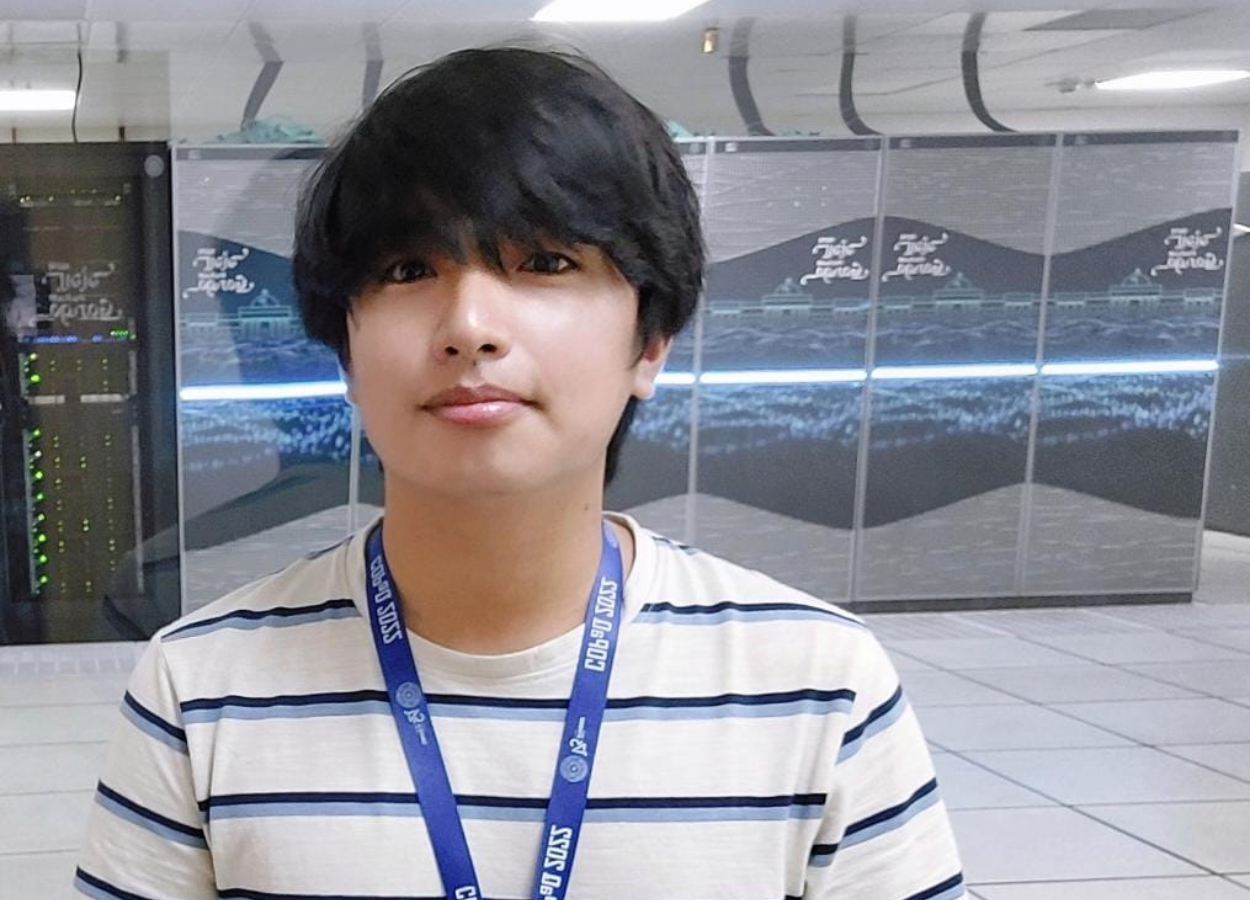
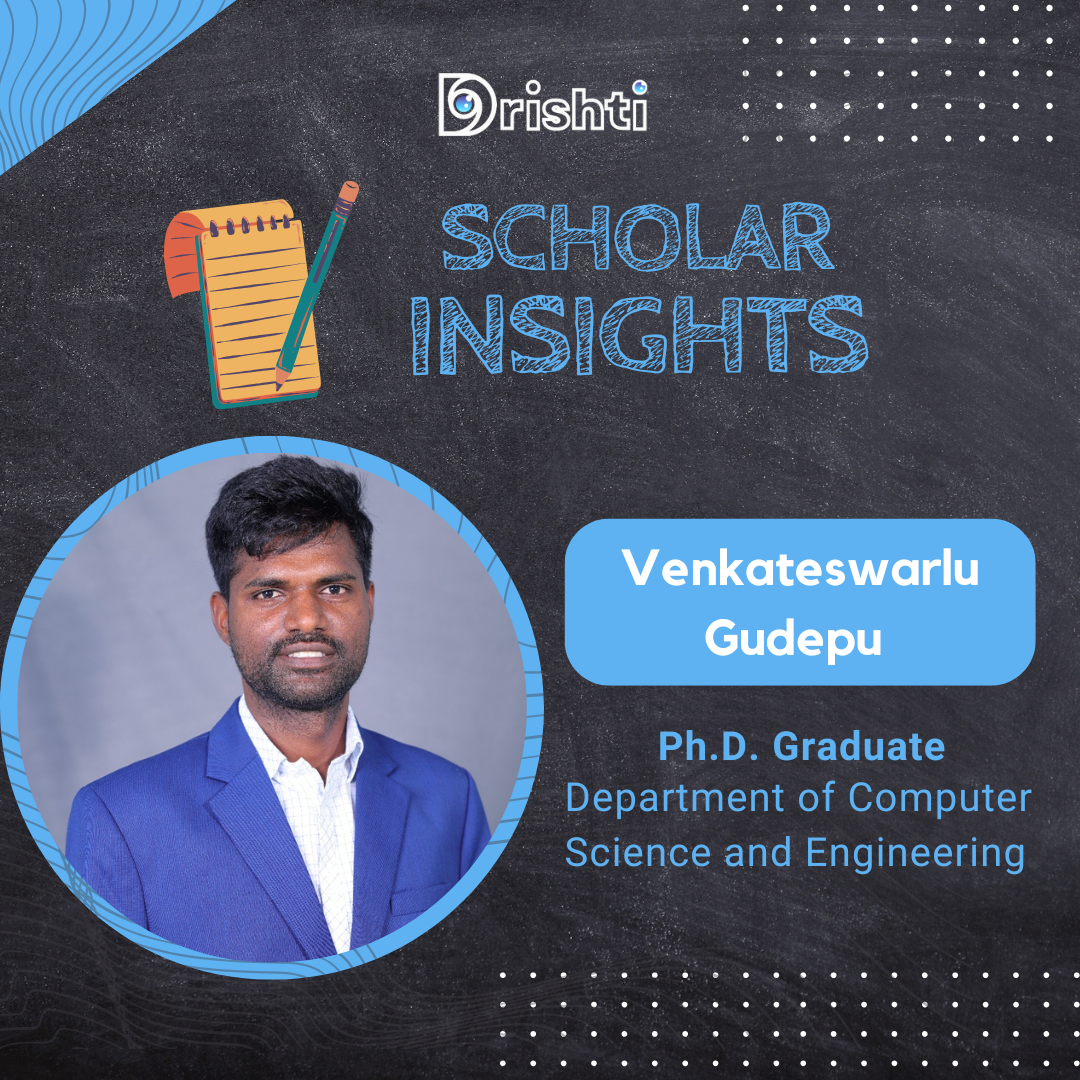


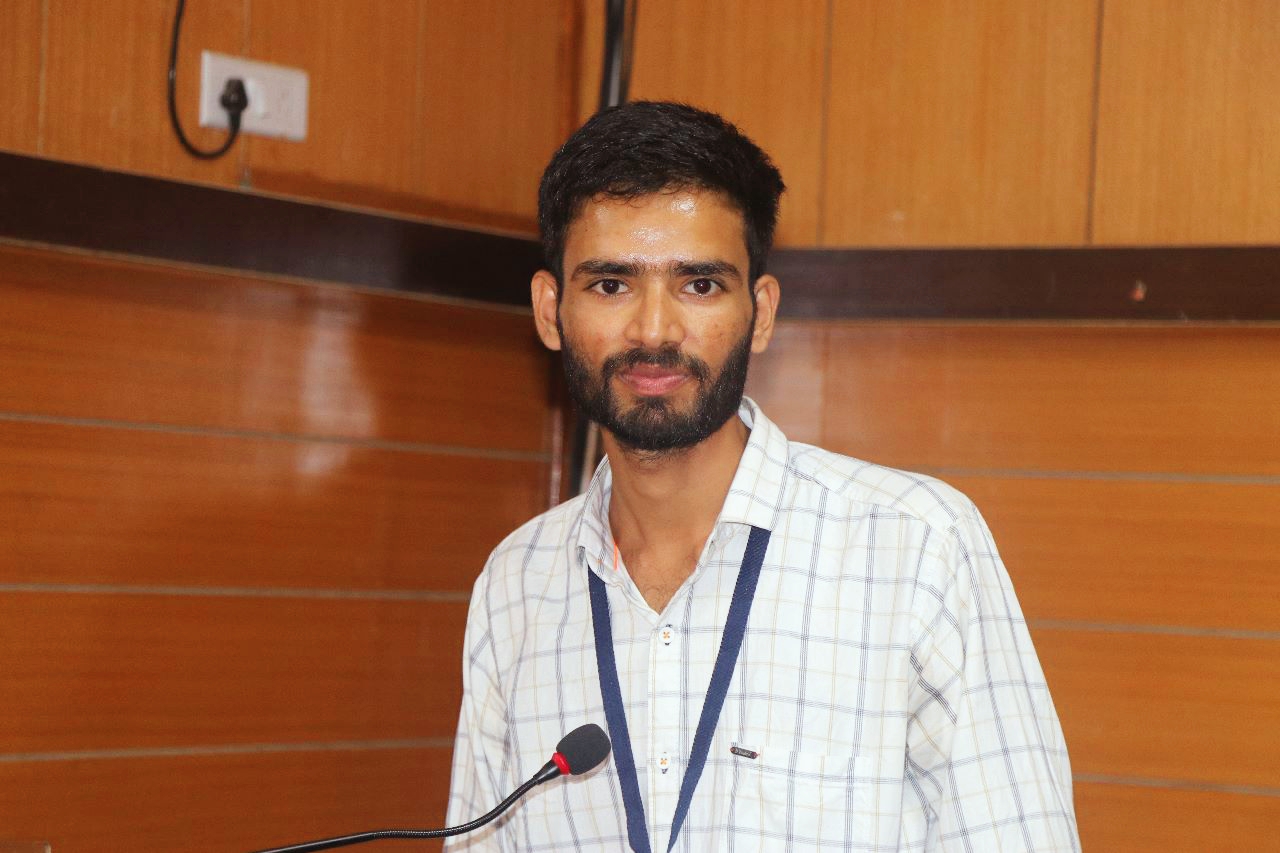
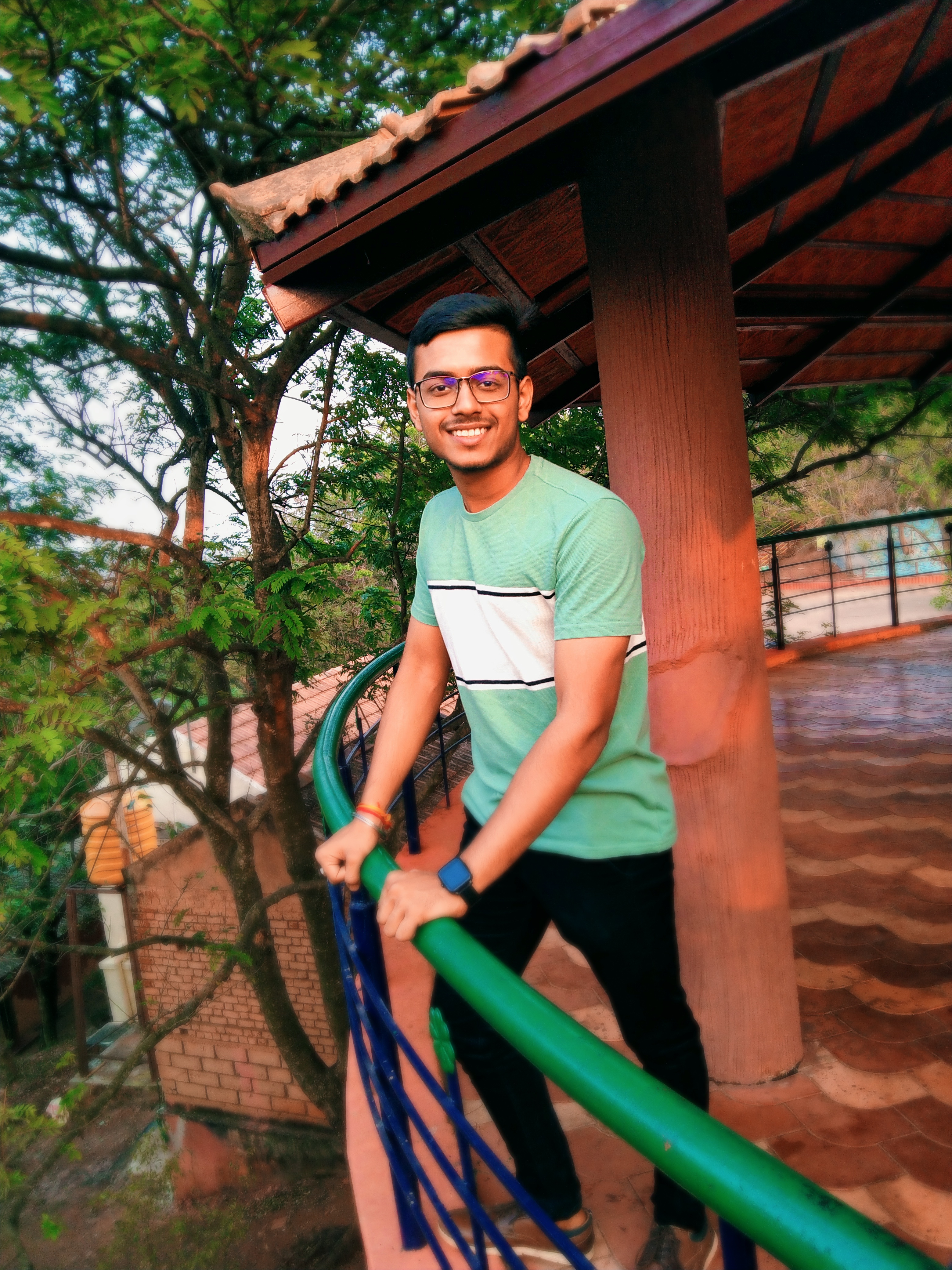
 Never miss a story from us, follow us on our handles!
Never miss a story from us, follow us on our handles!
Comments